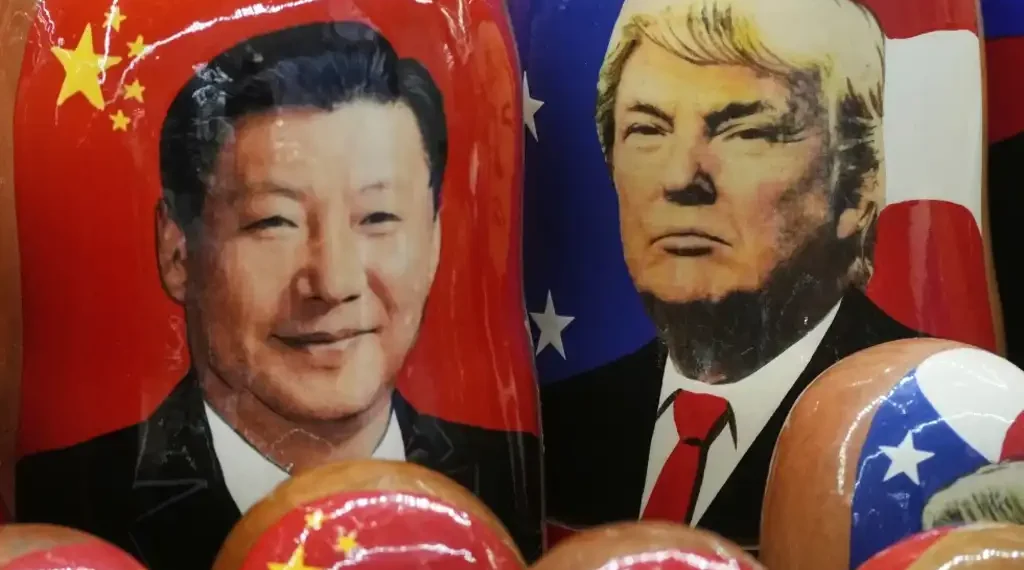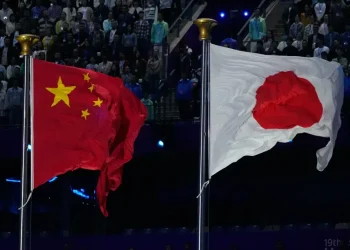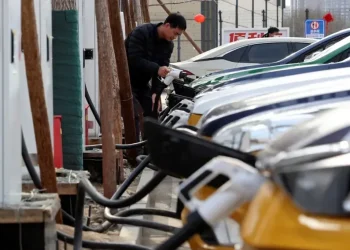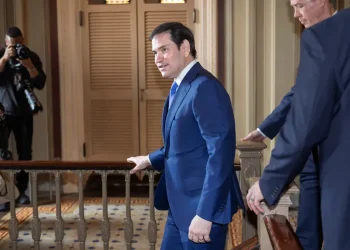Trump’s Push for China Trade Deal Sparks Debate Over Concessions and Taiwan’s Future
Published: August 6, 2025, 14:30 (U.S. Eastern Time)
WASHINGTON — President Donald Trump’s latest overtures toward China are stirring debate in Washington, with analysts, lawmakers, and foreign policy experts warning that his drive to secure a trade agreement with Beijing could come with concessions that may weaken U.S. leverage.
From easing certain export controls to allegedly blocking a planned U.S. transit by Taiwan’s president, Trump’s approach is drawing scrutiny for potentially prioritizing a face-to-face meeting with Chinese President Xi Jinping over hardline policy positions. While no summit date has been confirmed, many believe that direct talks — possibly in the fall — are necessary to finalize any trade pact.
Concerns Over “Summit Mismatch”
Craig Singleton, senior director of the China program at the Foundation for Defense of Democracies, said there is a “clear gap” between Trump’s eagerness to meet Xi and Beijing’s slower pace toward engagement.
“The risk isn’t just in giving away too much,” Singleton warned, “but also in letting Beijing set the tempo.”
U.S.–China relations have experienced dramatic swings since diplomatic ties were established in 1979, from cooperation to deep tensions — most notably after the 1989 Tiananmen Square crackdown, the 2001 U.S. spy plane incident, and the COVID-19 pandemic. Trump’s second term is adding a new element of unpredictability to the dynamic.
Bipartisan Reactions and Political Risks
Historically, meetings between U.S. presidents and Chinese leaders have sparked domestic criticism, regardless of party. Trump’s situation is unique, analysts say, because he is known for breaking with conventional political limits in pursuit of deals, while much of his Republican base has shifted toward a more hawkish stance on China.
“With President Trump, everything seems open for negotiation,” said Gabriel Wildau, managing director at consultancy Teneo. “Hawks worry that if Trump gets in the room with Xi, he’ll agree to extraordinary concessions for the sake of a deal.”
Democratic lawmakers have been more vocal in opposition. Rep. Gregory Meeks, ranking Democrat on the House Foreign Affairs Committee, accused Trump of “giving away the farm” in pursuit of what he called a “nonsensical trade deal” that could hurt U.S. families economically.
White House and Cabinet Reassurances
White House spokesman Kush Desai said the administration “has not wavered — and will never waver — in safeguarding our national and economic security to put America first,” emphasizing that export controls on sensitive technology and many tariffs remain intact.
Treasury Secretary Scott Bessent told CNBC in July that trade and national security are being kept separate in negotiations. Secretary of State Marco Rubio echoed that sentiment on Fox News Radio, stressing that while the U.S. remains committed to partners such as Taiwan, maintaining steady trade ties with China is strategically important.
“In the end, we have the two largest economies in the world,” Rubio said. “An all-out trade conflict might benefit the U.S. in certain ways, but it would hurt the global economy.”
Taiwan’s Unease Over Potential Bargains
One of the most sensitive concerns is Taiwan. Jason Hsu, senior fellow at the Hudson Institute and former Taiwanese legislator, said Taipei fears being treated as a bargaining chip in U.S.–China trade talks.
Last month, the White House reportedly blocked Taiwanese President Lai Ching-te’s request to transit through the U.S. — a departure from past practice. Rep. Raja Krishnamoorthi, the top Democrat on the House Select Committee on China, called it “a dangerous signal” that Taiwan’s democratic status might be negotiable.
Hsu warned that Beijing could pressure Trump to acknowledge the “one-China” principle or express support for unification, positions past administrations have resisted. He suggested Taiwan strengthen its economic partnership with the U.S. by boosting defense spending, expanding energy imports, and increasing market access for American businesses.
Sun Yun, director of the China program at the Stimson Center, noted that Trump is bound by the Taiwan Relations Act, which requires the U.S. to maintain unofficial relations and provide defense capabilities to deter Chinese aggression.
“He can adjust the relationship up or down,” Sun said, “but he can’t eliminate it.”
Export Controls and the Nvidia Chip Controversy
Export controls are another flashpoint. In April, the White House announced restrictions on sales of Nvidia’s H20 chips to China, citing national security. The ban was lifted three months later as trade tensions eased, prompting bipartisan criticism in Congress.
Rep. John Moolenaar, a Michigan Republican who chairs the House Select Committee on China, warned that such technology could be used by the Chinese military and to suppress domestic dissent.
Bessent defended the administration’s process, saying decisions involve the National Security Council and the Defense Department. He stressed that the H20 chips are far from Nvidia’s most advanced technology, which remains off-limits to Chinese buyers.
Hawkish Fears of a Rollback
Wildau cautioned that the chip decision could mark the start of a broader rollback of export controls implemented during the Biden administration, measures once viewed as “permanent and non-negotiable” by China hawks.
For now, Trump’s strategy appears to hinge on balancing economic engagement with maintaining U.S. security interests — a tightrope walk that will face its biggest test if and when he sits down with Xi Jinping later this year.
This article was rewritten by JournosNews.com based on verified reporting from trusted sources. The content has been independently reviewed, fact-checked, and edited for accuracy, neutrality, tone, and global readability in accordance with Google News and AdSense standards.
All opinions, quotes, or statements from contributors, experts, or sourced organizations do not necessarily reflect the views of JournosNews.com. JournosNews.com maintains full editorial independence from any external funders, sponsors, or organizations.
Stay informed with JournosNews.com — your trusted source for verified global reporting and in-depth analysis. Follow us on Google News, BlueSky, and X for real-time updates.














